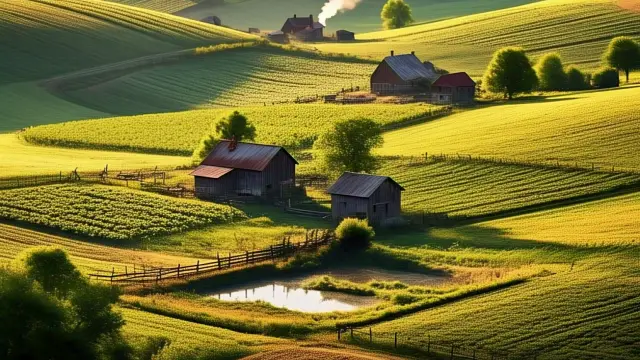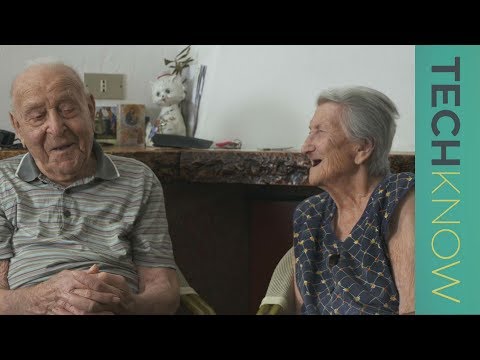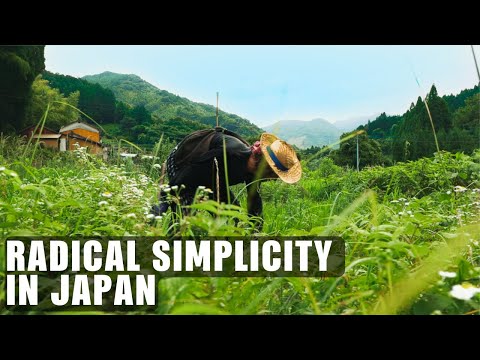Why People in Remote Villages Outlive Us: Secrets of Zero-Money Health
Have you ever wondered why some people in remote villages seem to live longer, healthier lives than those of us with access to gyms, supplements, and cutting-edge medical care? It’s a question that’s fascinated me for years. I mean, shouldn’t modern conveniences give us the upper hand when it comes to health and longevity? Yet, studies show that many rural communities—often without fancy diets or expensive treatments—are thriving well into their 80s, 90s, and beyond.
What’s their secret? Is it something in the water? A magical herb? Or is it something simpler—something we’ve forgotten in our fast-paced, tech-driven world? Let’s dive into the secrets of zero-money health and uncover what these villagers know that we might have overlooked.
The Paradox of Modern Living
Here’s the thing: we live in an age where health is big business. From $100 yoga mats to $5 smoothies, there’s no shortage of products promising to boost your well-being. But despite all this spending, chronic diseases like obesity, diabetes, and heart disease are on the rise. Meanwhile, people in remote villages—who often lack access to hospitals, processed foods, and fitness trackers—are outliving us.
Take Okinawa, Japan, for example. This island is home to one of the highest concentrations of centenarians (people over 100) in the world. Or consider the Blue Zones—regions identified by researchers as hotspots of longevity, including places like Sardinia, Italy, and Nicoya, Costa Rica. What do these communities have in common? Spoiler alert: it’s not a miracle pill or a high-tech gadget.
Secret #1: Move Naturally
One of the biggest differences between us and remote villagers? Movement. While we’re glued to our desks or couches, villagers stay active throughout the day in ways that feel natural—not forced.
Think about it: they walk everywhere, garden, carry water, and perform daily chores that keep them moving. There’s no need for a Peloton bike or gym membership because physical activity is woven into their lives.
I remember visiting a small village in the mountains a few years ago. The locals laughed when I asked if they exercised. “Exercise?” one elderly woman said. “We don’t have time for that—we’re too busy living!” She was chopping wood and climbing ladders at 82, looking stronger than most people half her age.
Personal opinion: Maybe we’ve overcomplicated fitness. Instead of chasing trendy workouts, we should focus on staying active in ways that feel intuitive and enjoyable.
Secret #2: Eat Real Food
Another key factor? Diet. In remote villages, meals are simple, seasonal, and plant-based. Think fresh vegetables, whole grains, legumes, nuts, and minimal meat. Processed foods? Practically nonexistent.
For instance, the traditional Okinawan diet is rich in sweet potatoes, soybeans, and seaweed—all packed with nutrients that support heart health and longevity. Similarly, the Mediterranean diet—popular in Sardinia—emphasizes olive oil, fish, and plenty of fruits and veggies.
But here’s the kicker: these diets aren’t just about what they include—they’re also about what they exclude. No sugary cereals, no fried snacks, no artificial additives. Just real, wholesome food grown close to home.
When I started incorporating more whole foods into my own diet, I noticed a huge difference. My energy levels soared, and I felt less bloated after meals. Plus, cooking with fresh ingredients became a joyful ritual rather than a chore.
Secret #3: Strong Social Connections
Loneliness is a silent killer—and one of the reasons remote villagers thrive may be their strong sense of community. In these areas, neighbors aren’t just acquaintances; they’re family. People gather regularly to share meals, celebrate milestones, and support each other through tough times.
Research backs this up. A study published in PLOS Medicine found that strong social ties can increase lifespan by up to 50%. That’s right—having friends and loved ones around could be as important as eating well or exercising!
I’ll never forget sitting around a fire with villagers in Costa Rica, listening to stories and laughter echo into the night. They weren’t worried about Instagram likes or Netflix queues—they were fully present, connecting deeply with one another.
Pro tip: If you want to live longer, prioritize relationships. Call a friend, join a club, or volunteer in your community. Human connection is priceless.
Secret #4: Live with Purpose
In remote villages, people often live with a clear sense of purpose. Whether it’s tending to crops, caring for grandchildren, or preserving traditions, they wake up each day knowing their actions matter.
This concept, known as ikigai in Japanese culture, translates roughly to “reason for being.” Studies suggest that having a purpose in life reduces stress, boosts mental health, and even lowers the risk of chronic illness.
Reflecting on this made me realize how easy it is to lose sight of purpose in our busy lives. We chase promotions, scroll endlessly, and fill our schedules—but do we stop to ask, “What am I living for?”
Secret #5: Embrace Simplicity
Finally, let’s talk about simplicity. Life in remote villages isn’t cluttered with endless choices, constant notifications, or the pressure to “do it all.” People focus on what truly matters: family, nature, and basic needs.
There’s wisdom in this approach. Research shows that simplifying your life can reduce stress and improve happiness. When you strip away distractions, you create space for joy, gratitude, and mindfulness.
During my travels, I met a farmer who owned just two pairs of clothes and a single pot for cooking. Yet he radiated contentment. He told me, “Happiness doesn’t come from things—it comes from inside.”
Can We Adopt These Secrets in Our Own Lives?
Absolutely. You don’t need to move to a remote village to reap the benefits of their lifestyle. Here’s how you can start:
- Move naturally: Take the stairs, walk to work, or dance in your living room. Find movement you enjoy.
- Eat real food: Swap processed snacks for whole foods. Grow herbs on your windowsill if you can.
- Connect with others: Spend quality time with loved ones. Join a group or volunteer.
- Find your purpose: Reflect on what brings meaning to your life. Write it down and act on it.
- Simplify: Declutter your home, limit screen time, and focus on what truly matters.
Final Thoughts: Less Is More
At the heart of these longevity secrets lies a simple truth: health doesn’t have to be complicated or expensive. By embracing natural movement, nourishing food, meaningful connections, and a simpler way of life, we can unlock the same vitality that keeps remote villagers thriving.
So, the next time you’re tempted to buy another detox tea or sign up for a pricey fitness class, pause and ask yourself: “What would the villagers do?” Sometimes, the best solutions are the ones that cost nothing at all.
/Which of these zero-money health secrets resonates with you most? Have you tried any of them already? Share your thoughts below—I’d love to hear how you’re simplifying your path to better health!



